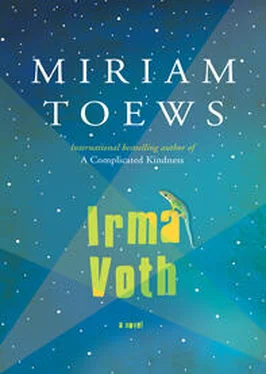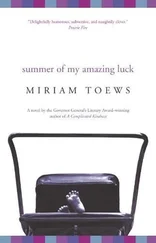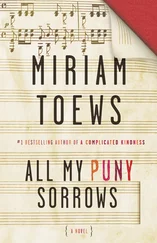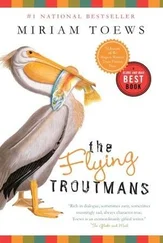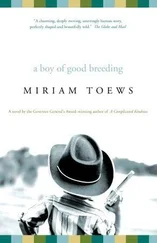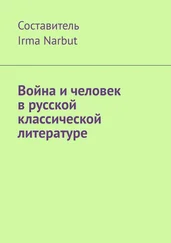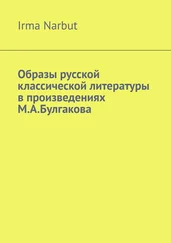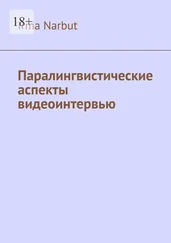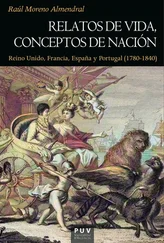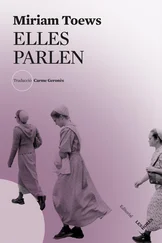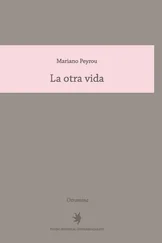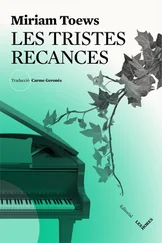How old do you think I am? she asked.
I don’t know, I said. Thirty?
I’ll be forty-one in three weeks, she said.
You don’t look forty-one, I said.
That’s because something very traumatic happened to me when I was fourteen and as a result of that trauma I was prevented from moving forward, she said.
Oh, I said. But you will be forty-one in three weeks?
Technically, she said. On some level I’ve been alive for forty-one years but on other levels I stopped progressing at fourteen.
What happened to you when you were fourteen? I asked. I sat down on the bed beside her and she handed me her pack of cigarettes.
I’ll tell you another time, she said. I have a son who isn’t much younger than you.
How old is he? I asked.
He’s sixteen, she said. But spiritually he’s much older. I’d say closer to eighty.

I hope that someday somebody asks me where I was when I smoked my first cigarette so that I can tell them that yeah, well, you know, I was in my aunt and uncle’s bed with this fourteen-year-old German actress who had an eighty-year-old son. No big deal. Marijke talked about her son, about missing him. She told me that she was worried that maybe she had been too much of a friend to her son lately and not enough of a parent.
Friends are good, she said, but sometimes a kid needs someone just to say hey, don’t inject that, or whatever.
Are you from Russia? I asked her.
Yes, she said. I was born there but the place where I was born doesn’t exist now.
What do you mean? I asked her. I was having a hard time following this conversation. I knew more about the social significance of birdsong, I realized, than I did about human interaction.
We talked about Diego and the crew and we talked about the script which I hadn’t seen but which she told me was full of little drawings that accompanied the text and that she thought she’d be expected to take off her clothes for one or two scenes.
Do you want me to tell Diego that you don’t want to take off your clothes? I asked her.
No, no, she said. That doesn’t bother me. It’s his story.
What is the movie about? I asked her.
Agony. And swimming. I don’t know. I can’t quite figure it out from the pictures and it’s written in Spanish.
She asked me if I wanted to see the script and I said yeah but then she couldn’t find it in her room and didn’t want to go out to the main room to see if she’d left it there because she’d be expected to socialize with a bunch of people she couldn’t communicate with beyond tequila and danke schön or learn how to juggle devil sticks or whatever they were doing in there.
I should go, I said. I was worried that Aggie would come looking for me here.
Why? said Marijke. You’re nineteen years old! Are your parents that strict?
No, no, I said. My husband.
What? said Marijke. You’re married?
Yeah, I said.
Does your husband mind that you’re working as my translator?
No, I said. Not really. Well, actually, he doesn’t know about it. He’s been away for a while.
Well then, how would he be worried? she said. Why should you go home? She put her finger gently on the bumpy ridge between my eyes. Where your source of energy begins, she said. She kneaded the bumpy ridge gently with her long finger. I tried to speak and she said don’t speak now, notice the light. Do you notice the light?
I don’t know, I said. I have to do the milking or the cows will explode.
Is your husband a good kisser? she asked.
What? I said. Jorge? I don’t know. I have nothing to compare him to.
We were quiet then, smoking, thinking about Jorge. At least I was. I think he might have been a good kisser. I pledged to tell him that if I ever saw him again. The cigarette was making me feel dizzy and I was trying not to cough.
Have you heard of the four-part cure, Irma? she asked.
No, I said. Cure for what? I stood up and looked around for a place to put my cigarette.
Here, said Marijke. She took it and put it in a glass of water next to her bed.
She said she had googled a new philosophy, a four-part cure, that would help her to live life on life’s terms. She laid it out for me:
Don’t fear God, she said.
Don’t worry about death.
What is good is easy to get, and
What is terrible is easy to endure.
I’m quoting, she said. It’s Epicurean. From a thousand years ago. People misinterpret Epicureanism these days. They misinterpret everything.
Plus, she said, I’ve learned that thoughts are atoms flying around in totally random patterns.
Oh, I said. They are?
That’s all they are, she said. It’ll help me in the desert. And I do believe in my soul. Anxiety’s the killer.
Yeah, I said. That’s true. Can I ask you a question?
Anything, she said. She squeezed my red, chapped hands and the room suddenly smelled like milk.
Why were you crying before? I asked.
Oh, that, she said. Okay, here’s the thing. It’s true that I have a new cure that I’m counting on to get me through life and it’s true that I’m a little bit tough but the reality is that I’m a middle-aged woman in the middle of nowhere, a Mexican desert for God’s sake, about to do something I have no experience doing and I’m feeling very, very alone and unsure and ridiculous and afraid.
Well, why did you agree to be in the movie? I asked her.
I’m not really sure, she said. Why did you agree to be my translator?
I’m not sure either, I said.
Well, I think I do know, actually, she said.
Yeah? I said. Why?
Because we were asked to, she said.
Oveja was stoned and following me from a distance. Elias, the cameraman, had told me on my way out that Oveja had eaten his stash of pot and that it had made him more philosophical. He’ll think twice before he attacks, he said. Elias made me laugh. He didn’t stop talking, like he didn’t care that silence was supposedly golden, his currency was different. He had bought himself some clothes from the store in town, Wrangler jeans and a plaid shirt and work boots. Now I’m a Mennonite, he said. He told me that when he was a boy in Mexico City he had learned about Mennonites. He had seen some of them selling cheese on the streets and he had wanted to be one. Elias told me that he had even drawn a self-portrait of himself as a Mennonite in a bathtub. It’s remarkable, he said, that now I’m making a film about them. He showed me a photograph of himself as a little boy on a beach in Acapulco. See that? he said. He told me that when he was a little boy he had an ass but that somehow, along the road to adulthood, he had lost his ass. Do you see? he said. He turned around so I could look at him. I thought he did have an ass but a small one. Look at Wilson, he said. He’s got two asses and I have none. That’s not fair.
Wilson ignored him completely. He was writing something down. Then he looked up and smiled at me and shrugged his shoulders. I’m Wilson, he said. That’s fine, I said. Why did I say it was fine for him to be Wilson? I wanted to go back and tell him that I was Irma. But he knew that.
Diego asked me, before I left for home, if Marijke was okay and what we had talked about. She’s fine, I said. Diego told me that the others had returned with the essential camera part and that tomorrow morning, early, we’d start shooting.
I was less afraid of Oveja now that he was a philosopher but I was nervous when he followed me home. I imagined his brown teeth sinking, pensively, into the back of my leg in search of something elusive. I thought about what Marijke had said. Oveja, I said, would you please stop following me? Asking didn’t change anything with dogs.
Читать дальше
